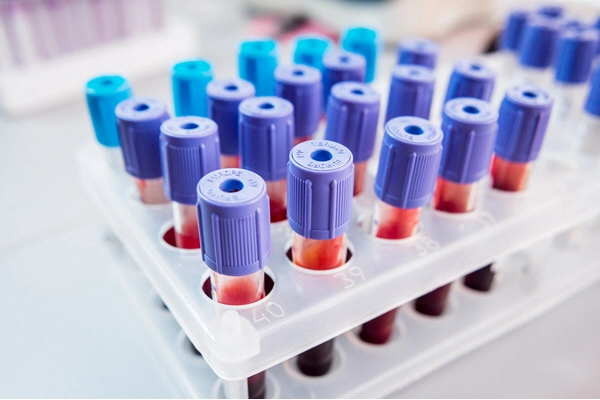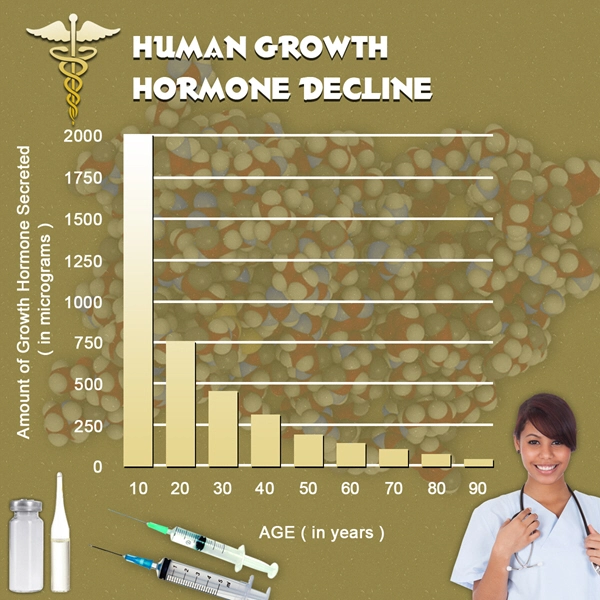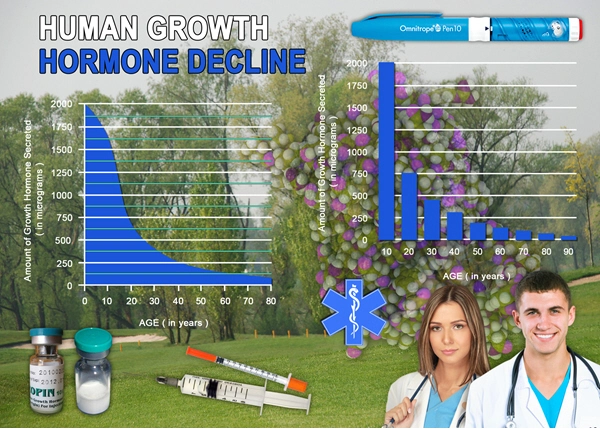
Balanced Hormone Levels are critical to a healthy life. You may not realize it, but our choices and circumstances play a big role in the function of the endocrine system. While many Hormonal Issues are caused by genetics or other unavoidable factors, lifestyle plays a major role in preserving optimal Hormone Levels, especially for particularly precarious hormones such as Testosterone, Insulin, and Human Growth Hormone.
Sedentary Lifestyle is a huge contributor to Hormone Imbalance. Humans weren't designed to sit around doing nothing, but the modern world puts us in a situation where we can survive with minimal activity. While it's true that many people choose to be couch potatoes, others are placed in a position where it is challenging to live an active life. 40+ hours sitting at a desk with lengthy commutes are hardly uncommon.
Video Link: https://vimeo.com/560715583
Video Download: The Effects Of Sedentary Lifestyle On Health And Hormone Balance In Men
Video Stream: The Effects Of Sedentary Lifestyle On Health And Hormone Balance In Men
The mental stress of the day can make it very difficult to generate the willpower to get active. On the other hand, it's imperative to include exercise in your life because your body will suffer, and you'll inevitably experience the effects of Hormone Imbalance.
How Does Sedentary Lifestyle Effect Hormone Levels and Health?
Sedentary Lifestyle Saps Testosterone Levels and Contributes to Low-T
Testosterone is the lynchpin hormone of masculinity. It bolsters strength, burns off fat, and keeps us mentally healthy. Testosterone Levels are maintained by muscle mass and drained by body fat. Body fat produces Estrogen, which suppresses the production of Testosterone.
When we engage in anaerobic exercise, this stimulates the production of Testosterone. Working out larger muscle groups provides the greatest encouragement in this regard. Cardio isn't as important to Testosterone, but it does burn off body fat, which helps maintain balance and keep Testosterone Levels optimized. When you don't stay active, this suppresses Testosterone and causes symptoms of Low-T.
Exercise Encourages HGH Balance
Human Growth Hormone is the body's primary metabolic powerhouse. HGH plays roles in growth, rejuvenation, and healing. It also frees up energy from body fat to supplement energy from diet. When you exercise, the body uses Human Growth Hormone to keep energy flowing to your muscles and cardiovascular system. HGH also helps build muscle because it controls the repair and rebuilding processes which lead to bigger muscles. When you aren't getting enough exercise, it makes it harder to utilize stored body fat, which contributes to weight gain. Suppressed Growth Hormone Production also makes you tired and lethargic, making it harder to maintain an active routine.
Sedentary Lifestyle Increases Stress and Cortisol Production
Cortisol is an important, yet problematic, stress hormone that is dangerous to health under certain circumstances. Cortisol stimulates stress response and puts the body and mind at alert. In the short term, Cortisol is a critical survival tool, but chronic stress is a significant source of Hormone Imbalance. Cortisol is made from the same core building blocks as Testosterone and HGH. When the body produces too much Cortisol, it prevents the body from making hormones beneficial to long-term health and wellness. Cortisol can be controlled effectively through exercise. Physical activity and mindfulness are two of the most powerful tools at your disposal to mitigate Cortisol Imbalance and improve Hormone Balance.
An Active Lifestyle Wards off Type-2 Diabetes
Insulin is your body's tool to take energy from the bloodstream (circulating as glucose) and distribute it to your cells. It has an intimate relationship with Human Growth Hormone. Insulin Resistance is also a lead contributor to Low-T. When you absorb more calories than you can burn off, this causes you to gain weight. If you source your calories too heavily from sources such as simple sugars and carbs, this contributes to Insulin Resistance which can eventually metastasize into Diabetes. These risks are amplified if you live a sedentary lifestyle. Staying active helps your body use the energy available from diet more effectively. An active lifestyle helps HGH, Insulin, and Diet work together to meet the needs of the human body without leading to chronic health complications down the road.

- Human Growth Hormone Injections In Cheyenne [Last Updated On: February 3rd, 2025] [Originally Added On: October 19th, 2018]
- Human Growth Hormone Injections In Madison [Last Updated On: February 9th, 2025] [Originally Added On: October 19th, 2018]
- Human Growth Hormone Injections In Vancouver [Last Updated On: February 24th, 2025] [Originally Added On: October 19th, 2018]
- Human Growth Hormone Injections In Tacoma [Last Updated On: February 25th, 2025] [Originally Added On: October 19th, 2018]
- Human Growth Hormone Injections In Spokane [Last Updated On: February 26th, 2025] [Originally Added On: October 19th, 2018]
- Human Growth Hormone Injections In Bellevue [Last Updated On: February 26th, 2025] [Originally Added On: October 19th, 2018]
- Human Growth Hormone Injections In Richmond [Last Updated On: February 9th, 2025] [Originally Added On: October 19th, 2018]
- Human Growth Hormone Injections In Portsmouth [Last Updated On: February 10th, 2025] [Originally Added On: October 19th, 2018]
- Human Growth Hormone Injections In Norfolk [Last Updated On: February 10th, 2025] [Originally Added On: October 19th, 2018]
- Human Growth Hormone Injections In Hampton [Last Updated On: March 27th, 2025] [Originally Added On: October 19th, 2018]
- Human Growth Hormone Injections In Chesapeake [Last Updated On: March 27th, 2025] [Originally Added On: October 19th, 2018]
- Human Growth Hormone Injections In Alexandria [Last Updated On: March 28th, 2025] [Originally Added On: October 19th, 2018]
- Human Growth Hormone Injections In Montpelier [Last Updated On: February 11th, 2025] [Originally Added On: October 19th, 2018]
- Human Growth Hormone Injections In Provo [Last Updated On: February 11th, 2025] [Originally Added On: October 19th, 2018]
- Human Growth Hormone Injections In Waco [Last Updated On: February 16th, 2025] [Originally Added On: October 19th, 2018]
- Human Growth Hormone Injections In Richardson [Last Updated On: February 14th, 2025] [Originally Added On: October 19th, 2018]
- Human Growth Hormone Injections In Plano [Last Updated On: February 15th, 2025] [Originally Added On: October 19th, 2018]
- Human Growth Hormone Injections In Pasadena [Last Updated On: February 13th, 2025] [Originally Added On: October 19th, 2018]
- Human Growth Hormone Injections In Midland [Last Updated On: February 16th, 2025] [Originally Added On: October 19th, 2018]
- Human Growth Hormone Injections In Mesquite [Last Updated On: February 13th, 2025] [Originally Added On: October 19th, 2018]
- Human Growth Hormone Injections In McKinney [Last Updated On: February 12th, 2025] [Originally Added On: October 19th, 2018]
- Human Growth Hormone Injections In McAllen [Last Updated On: February 17th, 2025] [Originally Added On: October 19th, 2018]
- Human Growth Hormone Injections In Lubbock [Last Updated On: February 15th, 2025] [Originally Added On: October 19th, 2018]
- Human Growth Hormone Injections In Lewisville [Last Updated On: February 14th, 2025] [Originally Added On: October 20th, 2018]
- Human Growth Hormone Injections In Laredo [Last Updated On: February 12th, 2025] [Originally Added On: October 20th, 2018]
- Human Growth Hormone Injections In Killeen [Last Updated On: February 18th, 2025] [Originally Added On: October 20th, 2018]
- Human Growth Hormone Injections In Irving [Last Updated On: February 19th, 2025] [Originally Added On: October 20th, 2018]
- Human Growth Hormone Injections In Garland [Last Updated On: February 20th, 2025] [Originally Added On: October 20th, 2018]
- Human Growth Hormone Injections In Denton [Last Updated On: February 21st, 2025] [Originally Added On: October 20th, 2018]
- Human Growth Hormone Injections In Carrollton [Last Updated On: February 17th, 2025] [Originally Added On: October 20th, 2018]
- Human Growth Hormone Injections In Brownsville [Last Updated On: February 21st, 2025] [Originally Added On: October 20th, 2018]
- Human Growth Hormone Injections In Beaumont [Last Updated On: February 18th, 2025] [Originally Added On: October 20th, 2018]
- Human Growth Hormone Injections In Austin [Last Updated On: February 22nd, 2025] [Originally Added On: October 20th, 2018]
- Human Growth Hormone Injections In Arlington [Last Updated On: February 20th, 2025] [Originally Added On: October 20th, 2018]
- Human Growth Hormone Injections In Amarillo [Last Updated On: February 19th, 2025] [Originally Added On: October 20th, 2018]
- Human Growth Hormone Injections In Abilene [Last Updated On: February 22nd, 2025] [Originally Added On: October 20th, 2018]
- Human Growth Hormone Injections In Nashville [Last Updated On: February 27th, 2025] [Originally Added On: October 20th, 2018]
- Human Growth Hormone Injections In Murfreesboro [Last Updated On: February 27th, 2025] [Originally Added On: October 20th, 2018]
- Human Growth Hormone Injections In Memphis [Last Updated On: February 28th, 2025] [Originally Added On: October 20th, 2018]
- Human Growth Hormone Injections In Knoxville [Last Updated On: February 28th, 2025] [Originally Added On: October 20th, 2018]
- Human Growth Hormone Injections In Clarksville [Last Updated On: March 1st, 2025] [Originally Added On: October 20th, 2018]
- Human Growth Hormone Injections In Chattanooga [Last Updated On: March 1st, 2025] [Originally Added On: October 20th, 2018]
- Human Growth Hormone Injections In Erie [Last Updated On: March 29th, 2025] [Originally Added On: October 20th, 2018]
- Human Growth Hormone Injections In Allentown [Last Updated On: March 28th, 2025] [Originally Added On: October 20th, 2018]
- Human Growth Hormone Injections In Salem [Last Updated On: March 2nd, 2025] [Originally Added On: October 20th, 2018]
- Human Growth Hormone Injections In Portland [Last Updated On: March 2nd, 2025] [Originally Added On: October 20th, 2018]
- Human Growth Hormone Injections In Gresham [Last Updated On: March 3rd, 2025] [Originally Added On: October 20th, 2018]
- Human Growth Hormone Injections In Eugene [Last Updated On: March 3rd, 2025] [Originally Added On: October 20th, 2018]
- Human Growth Hormone Injections In Tulsa [Last Updated On: March 4th, 2025] [Originally Added On: October 20th, 2018]
- Human Growth Hormone Injections In Norman [Last Updated On: March 4th, 2025] [Originally Added On: October 20th, 2018]
- Human Growth Hormone Injections In Toledo [Last Updated On: February 5th, 2025] [Originally Added On: October 20th, 2018]
- Human Growth Hormone Injections In Dayton [Last Updated On: February 7th, 2025] [Originally Added On: October 20th, 2018]
- Human Growth Hormone Injections In Columbus [Last Updated On: February 7th, 2025] [Originally Added On: October 20th, 2018]
- Human Growth Hormone Injections In Akron [Last Updated On: February 8th, 2025] [Originally Added On: October 20th, 2018]
- Human Growth Hormone Injections In Paterson [Last Updated On: February 23rd, 2025] [Originally Added On: October 20th, 2018]
- Human Growth Hormone Injections In Reno [Last Updated On: February 24th, 2025] [Originally Added On: October 20th, 2018]
- Human Growth Hormone Injections In Henderson [Last Updated On: February 25th, 2025] [Originally Added On: October 20th, 2018]
- Human Growth Hormone Injections In Omaha [Last Updated On: February 4th, 2025] [Originally Added On: October 20th, 2018]
- Human Growth Hormone Injections In Lincoln [Last Updated On: February 4th, 2025] [Originally Added On: October 20th, 2018]
- Human Growth Hormone Injections In Billings [Last Updated On: February 5th, 2025] [Originally Added On: October 20th, 2018]
- Human Growth Hormone Injections In Springfield [Last Updated On: February 6th, 2025] [Originally Added On: October 20th, 2018]
- Human Growth Hormone Injections In Independence [Last Updated On: April 6th, 2025] [Originally Added On: October 20th, 2018]
- Human Growth Hormone Injections In Columbia [Last Updated On: February 6th, 2025] [Originally Added On: October 20th, 2018]
- Human Growth Hormone Injections In Jackson [Last Updated On: February 8th, 2025] [Originally Added On: October 20th, 2018]
- Human Growth Hormone Injections In Rochester [Last Updated On: February 23rd, 2025] [Originally Added On: October 20th, 2018]
- Human Growth Hormone Injections In Warren [Last Updated On: March 5th, 2025] [Originally Added On: October 20th, 2018]
- Human Growth Hormone Injections In Lansing [Last Updated On: March 5th, 2025] [Originally Added On: October 20th, 2018]
- Human Growth Hormone Injections In Flint [Last Updated On: March 6th, 2025] [Originally Added On: October 20th, 2018]
- Human Growth Hormone Injections In Worcester [Last Updated On: March 29th, 2025] [Originally Added On: October 20th, 2018]
- Human Growth Hormone Injections In Springfield [Last Updated On: March 30th, 2025] [Originally Added On: October 20th, 2018]
- Human Growth Hormone Injections In Lowell [Last Updated On: March 30th, 2025] [Originally Added On: October 20th, 2018]
- Human Growth Hormone Injections In Cambridge [Last Updated On: March 31st, 2025] [Originally Added On: October 20th, 2018]
- Human Growth Hormone Injections In Augusta [Last Updated On: March 6th, 2025] [Originally Added On: October 20th, 2018]
- Human Growth Hormone Injections In Shreveport [Last Updated On: March 7th, 2025] [Originally Added On: October 20th, 2018]
- Human Growth Hormone Injections In Lafayette [Last Updated On: March 7th, 2025] [Originally Added On: October 20th, 2018]
- Human Growth Hormone Injections In Louisville [Last Updated On: March 8th, 2025] [Originally Added On: October 20th, 2018]
- Human Growth Hormone Injections In Lexington [Last Updated On: March 8th, 2025] [Originally Added On: October 20th, 2018]
- Human Growth Hormone Injections In Wichita [Last Updated On: March 9th, 2025] [Originally Added On: October 20th, 2018]
- Human Growth Hormone Injections In Topeka [Last Updated On: March 9th, 2025] [Originally Added On: October 20th, 2018]
- Human Growth Hormone Injections In Olathe [Last Updated On: March 10th, 2025] [Originally Added On: October 20th, 2018]



List of USA state clinics - click a flag below for blood testing clinics.
Word Count: 675



















































